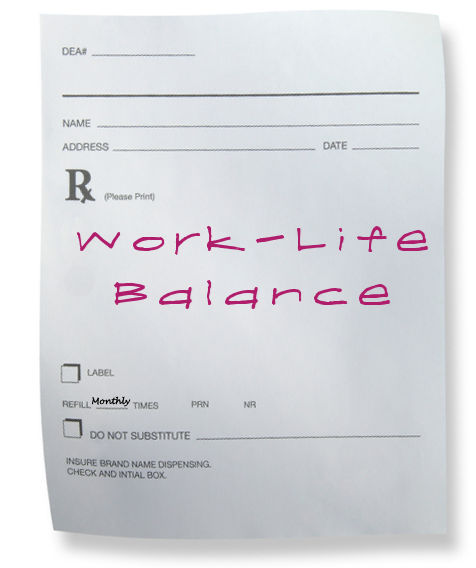If you had to write a prescription for balance for your patients, what would you include? Greater effectiveness at work? More time to play? Better relationships with others, as well as his/her self? Or all of the above? Like other prescriptions, a prescription for balance is not “one size fits all” but a customized approach that is based on ambitions, goals, circumstances, and preferences.
As the term “work-life balance” is used more frequently in healthcare these days, what does it really mean for you?
It doesn’t necessarily mean less work and more time for play, or even necessarily an equal time. It also doesn’t mean giving up high-striving professional goals and rewarding leadership positions. Its definition is not static and depends on a variety of personalized factors.
As Stephen Covey wrote in The 7 Habits of Highly Effective People, “Many people seem to think that success in one area can compensate for failure in other areas. But can it really? True effectiveness requires balance.”
Achieving a sense of balance includes being at peace with where you are in your career and your personal life while still striving for advancements and promotions. It also means that you are content in your relationships at work and at home, and that you easily resolve or avoid conflicts. You take care of your priorities, and none of the balls that you juggle in your professional and personal life come crashing down.
As a result of this balance, you work more effectively, provide more focused and compassionate care to your patients, while recognizing and honoring the importance for play, personal interest and family relationships.
Self-reflection questions:
- How do I define work-life balance for myself at this stage of my life?
- What would I have to give up in order to have more balance?
- What would I have to take on to have more balance in my life?

